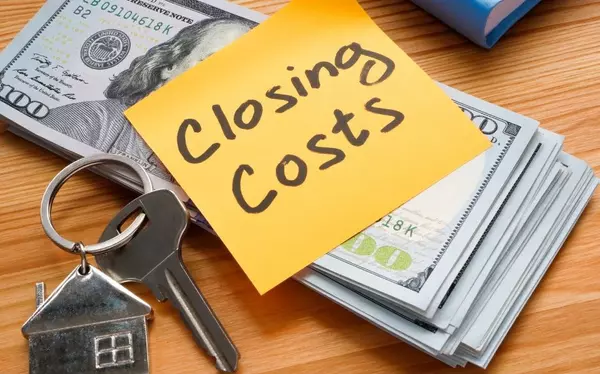How Much Does Selling a House Cost?

How Much Does Selling a House Cost?
Selling a house involves more than just finding a buyer and signing some paperwork. There are various costs associated with the process, and understanding these expenses is crucial for sellers to make informed decisions. Let's delve into the different expenses involved in selling a house and how they can impact your overall budget.
Key Takeaways for Selling Your Home Successfully
- Understanding Costs: Selling a house involves various costs beyond the sale price. It's crucial to be aware of expenses like repairs, staging, agent fees, closing costs, and marketing expenses. By understanding these costs upfront, sellers can budget effectively and avoid financial surprises later on.
- Working with a Trusted Realtor: Partnering with an experienced and trustworthy real estate agent is essential for minimizing costs and maximizing profits. A skilled agent can provide valuable insights, negotiate effectively on your behalf, and guide you through the entire selling process, ultimately ensuring a successful sale.
- Maximizing Tax Benefits: Sellers should be aware of the tax implications of selling their home, particularly capital gains taxes. Understanding available exemptions and deductions can help minimize tax liabilities and maximize profits from the sale. Consulting with a tax professional can provide further guidance on optimizing tax benefits.
- Effective Negotiation Strategies: Negotiating with service providers, such as contractors, movers, and real estate agents, can help minimize costs and increase profitability. Researching and comparing quotes, as well as exploring DIY options where feasible, can lead to better terms and pricing. Negotiation skills are valuable assets for sellers seeking to maximize their gains.
- Professional Guidance: Seeking professional advice, whether from a real estate agent, attorney, or tax advisor, is crucial for navigating the complexities of selling a home. Professionals can provide invaluable expertise, helping sellers make informed decisions, avoid costly mistakes, and achieve their desired outcome.
Preparing Your House for Sale
Before listing your house on the market, it's essential to ensure that it's in the best possible condition to attract potential buyers. This may involve making repairs and renovations to address any issues that could deter buyers or decrease the value of your home. From fixing leaky faucets to updating outdated features, these improvements can incur costs that sellers should budget for accordingly.
Additionally, home staging has become increasingly popular in the real estate market as it helps buyers envision themselves living in the space. Professional stagers can rearrange furniture, add decorative accents, and enhance curb appeal to make your home more appealing to potential buyers. However, these services come at a price and should be factored into your selling expenses.
Another crucial aspect of preparing your house for sale is investing in professional photography and listing fees. High-quality photos can significantly impact the first impression your home makes online, attracting more prospective buyers and potentially leading to quicker sales. Although it could appear like an extra cost, working with a professional photographer is a wise investment that will ultimately save you money and time.
Real Estate Agent Fees
One of the most significant costs associated with selling a house is the fees charged by real estate agents. Typically, real estate agents work on a commission basis, earning a percentage of the final sale price of the property. The standard commission structure varies but is typically around 5-6% of the sale price.
Several factors can influence agent fees, including the location of the property, the current state of the real estate market, and the level of service provided by the agent. Additionally, some agents may offer discounted rates or negotiate their commission fees, so it's essential to discuss these details upfront to avoid any surprises later on.
Negotiating agent commissions is a common practice among sellers looking to minimize costs. While some agents may be willing to lower their fees to secure your business, it's essential to consider the level of service you'll receive in exchange for the reduced commission. Ultimately, choosing the right agent who can effectively market your property and negotiate on your behalf is key to achieving a successful sale.
Closing Costs
Closing costs encompass a variety of fees and expenses that are incurred at the completion of a real estate transaction. While some of these costs may be negotiable or split between the buyer and seller, sellers should be prepared to cover certain expenses on their own. Consider the following typical closing costs:
Attorney Fees
Many sellers choose to hire a real estate attorney to oversee the closing process and ensure that all legal requirements are met. The intricacy of the deal and the lawyer's hourly rate will determine how much the attorney charges. However, having legal representation can provide sellers with peace of mind and help them navigate any potential legal issues that may arise.
Transfer Taxes
Transfer taxes are fees imposed by local governments on the transfer of real estate property from one party to another. These taxes are typically calculated based on the sale price of the property and can vary depending on the location. Sellers should consult with their real estate agent or attorney to determine the transfer tax rate applicable to their transaction.
Title Insurance
Title insurance protects both the buyer and seller against any defects or disputes related to the property's title. While buyers typically purchase title insurance to safeguard their investment, sellers are often responsible for covering the cost of the owner's title insurance policy. The cost of title insurance may differ based on the property's value and the title insurance provider chosen.
Marketing and Advertising Expenses
Effective marketing is essential for attracting potential buyers and selling a house quickly and at the desired price. However, marketing and advertising expenses can add up, so it's essential for sellers to budget accordingly. The following are typical marketing costs to take into account:
Online Listings
In the current digital era, the majority of potential homeowners begin their search online. Therefore, investing in online listings on popular real estate websites is crucial for reaching a wide audience of potential buyers. While some listing platforms may offer free or low-cost options, premium listings with enhanced features may come at an additional cost.
Print Materials
Print marketing materials, such as flyers, brochures, and postcards, can help promote your property to local buyers and real estate agents. While the cost of printing materials may vary depending on the quantity and quality of materials selected, these tangible marketing assets can make a lasting impression on potential buyers.
Open House Costs
Hosting an open house is an effective way to showcase your property to multiple buyers in a single event. However, there are associated costs, such as staging, refreshments, and signage, that sellers should be prepared to cover. Additionally, hiring a professional real estate agent to conduct the open house can ensure a smooth and successful event.
Importance of Pre-Listing Inspections
Before listing your home on the market, it's highly advisable to conduct a pre-listing inspection. This thorough examination of your property can uncover any potential issues that may arise during the buyer's inspection process. By addressing these issues upfront, you can avoid surprises and negotiate repairs or adjustments to the sale price more effectively.
While pre-listing inspections do incur a cost, typically ranging from $300 to $500 depending on the size and location of the property, they can ultimately save you time and money in the long run. By identifying and resolving issues early on, you can increase buyer confidence and streamline the sales process, leading to a smoother transaction and potentially a higher sale price.
Appraisal Costs
Another essential aspect of selling your home is obtaining an appraisal to determine its fair market value. A certified appraiser performs an appraisal, assessing the property's condition, location, and similar sales in the neighborhood, among other factors. The cost of an appraisal can vary depending on the size and complexity of the property but typically ranges from $300 to $500.
While buyers often request an appraisal as part of the mortgage approval process, sellers may also choose to obtain their own appraisal to ensure that their asking price is fair and competitive. By accurately pricing your home based on its appraised value, you can attract more qualified buyers and increase the likelihood of a successful sale.
Moving Expenses
Once you've accepted an offer on your home and the closing date is set, it's time to start planning for the moving process. Moving expenses can include a variety of costs, such as packing materials, hiring movers, and storage fees. While these expenses can add up, proper planning and budgeting can help minimize the financial impact.
Investing in high-quality packing materials, such as boxes, tape, and protective wrapping, can help safeguard your belongings during the move. While you may be tempted to cut costs by using free or recycled materials, investing in proper packing supplies can ultimately save you time and prevent damage to your items.
When it comes to hiring movers, it's essential to research and compare quotes from multiple moving companies to ensure you're getting the best value for your money. While price is undoubtedly a factor, it's also crucial to consider the company's reputation, insurance coverage, and level of service.
Finally, if you need to temporarily store your belongings during the transition, you may incur additional storage fees. Whether you opt for a self-storage unit or a moving container, be sure to factor these costs into your overall moving budget.
Understanding Capital Gains Taxes
One of the most significant financial considerations when selling a home is capital gains taxes. Capital gains taxes are taxes levied on the profit made from the sale of a capital asset, such as real estate. When you sell your home for more than you paid for it, you may be subject to capital gains taxes on the difference.
However, there are exemptions and deductions available that can help reduce or eliminate your capital gains tax liability. For example, the IRS allows individuals to exclude up to $250,000 in capital gains from the sale of their primary residence ($500,000 for married couples filing jointly) if certain criteria are met, such as owning and using the property as your primary residence for at least two out of the five years preceding the sale.
Additionally, you may be able to deduct certain expenses associated with selling your home, such as real estate agent commissions, closing costs, and home improvement expenses. By taking advantage of these exemptions and deductions, you can minimize your capital gains tax liability and maximize your profits from the sale of your home.
Negotiating Strategies to Minimize Costs
In addition to tax considerations, negotiating effectively with service providers can help minimize your selling costs and increase your overall profitability. Whether you're hiring a real estate agent, contractor, or moving company, there are several strategies you can employ to negotiate better terms and pricing.
First, research and compare quotes from multiple service providers to ensure you're getting the best value for your money. Don't be afraid to negotiate on price or ask for discounts, especially if you're bundling services or referring other clients. Additionally, consider exploring DIY options for tasks that you can handle yourself, such as minor repairs or staging, to save money on labor costs.
Keep in mind that negotiation is a skill that can be honed with practice, so don't be discouraged if it takes time to master. By being assertive, prepared, and willing to walk away if necessary, you can negotiate more favorable terms and reduce your selling expenses.
Conclusion
In conclusion, selling a home involves various costs and financial considerations that sellers need to be aware of to maximize their profits and achieve a successful sale. From understanding capital gains taxes to negotiating with service providers, careful planning and strategic decision-making are essential for minimizing costs and increasing profitability.
It's crucial for sellers to budget and plan for selling costs upfront and seek professional advice when needed to navigate the complexities of the real estate market effectively. By understanding the tax implications, exploring negotiation strategies, and seeking professional guidance, sellers can sell their homes with confidence and achieve their desired outcome.
Categories
Recent Posts










